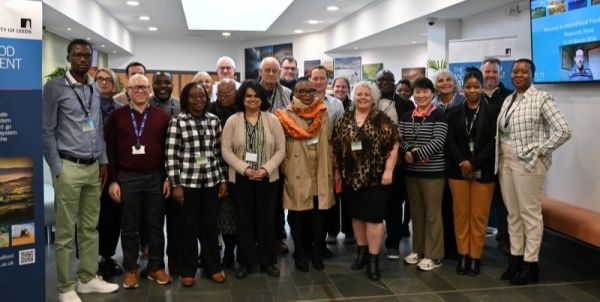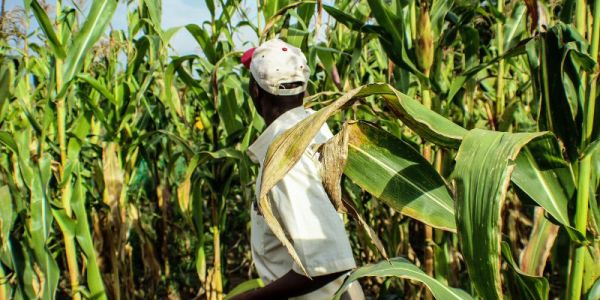
El Niño caused greatest ever mass extinction new research reveals
Mega ocean warming El Niño events were a significant driver of the largest mass extinction of life on Earth some 252 million years ago, according to new research.

Mega ocean warming El Niño events were a significant driver of the largest mass extinction of life on Earth some 252 million years ago, according to new research.

Emissions of a greenhouse gas more potent than carbon dioxide or methane increased unabated up to 2020, according to a new report which a University of Leeds academic helped to produce.

Data scientist Craig Poku advocates for minorities working in STEM, acting as the role model he never had early in his career.

Partners from across Africa gathered in Leeds for a week of research dedicated to tackling challenges in food systems and supply chains.

Switching to plant-based pies, burgers and hot dogs at home football games over the Green Football Weekend would save more than 250,000kg of carbon emissions, new research shows.

Harmful emissions from the industrial sector could be reduced by up to 85% across the world, according to new research.

Three Leeds researchers have received prestigious fellowships to support their research in climate, health and mitigating the damage from invasive species.

Climate change is pushing the world towards a series of “tipping points” which will see rapid and irreversible change across the natural and social worlds, say a group of leading experts.

New and novel techniques in satellite analysis will be used by scientists at the University of Leeds to help farmers in Kenya respond to global warming and environmental degradation.

A new study shows unprecedented heat is likely to lead to the next mass extinction since the dinosaurs died out, eliminating nearly all mammals in some 250 million years time.